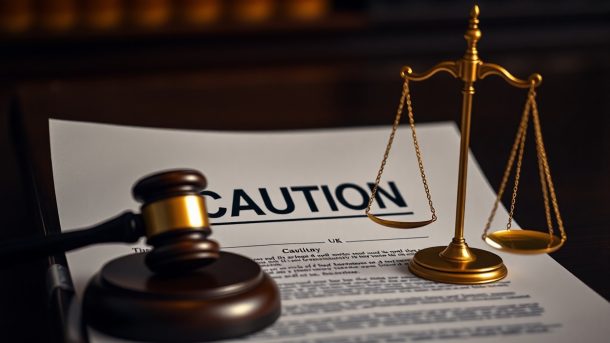There’s no question that being arrested can be a daunting experience, but knowing how to respond can make a significant difference in your situation. This guide offers imperative legal advice tailored for you, outlining the steps you should take immediately after an arrest in the UK. From understanding your rights to securing legal representation, we’ll walk you through each critical step, ensuring you are informed and prepared for what lies ahead.
Key Takeaways:
- Know Your Rights: Understanding your legal rights during an arrest is necessary, including the right to remain silent and the right to legal representation.
- Request Legal Assistance: Always ask for a solicitor as soon as possible; having legal representation can greatly influence the outcome of your case.
- Stay Calm and Compliant: Keeping a respectful demeanor and cooperating with law enforcement can help avoid escalating the situation.
Understanding Your Rights When Arrested
For anyone facing arrest in the UK, it is necessary to understand your rights. Knowing what you are entitled to can help you navigate this challenging situation more effectively. For more information on your legal rights and how to pursue criminal charges – how to get legal advice, consider reaching out to legal professionals who can provide the guidance you need.
Right to Remain Silent
To protect your interests, you have the right to remain silent when questioned by the police. This right allows you to avoid self-incrimination and ensures that anything you say cannot be used against you in court. It is advisable to seek legal advice before answering any questions.
Right to Legal Representation
Beside your right to remain silent, you also have the right to legal representation during an arrest. This right means that you can request a solicitor to help you understand the charges against you and advise you on the best course of action.
Right to legal representation ensures that you fully understand the legal proceedings and can make informed decisions regarding your case. You should always ask for a solicitor if you are arrested, as they have the legal expertise necessary to advocate for your rights and interests effectively.


The Arrest Process
Assuming you are arrested in the UK, the process typically begins when police officers inform you that you are being detained. They must identify themselves and provide the reason for your arrest, which may involve a suspected crime. You will be taken to a police station, where your personal details will be recorded and you will be informed of your rights, including the right to legal representation. This initial stage is vital to your understanding of the legal proceedings that will follow.
What to Expect During an Arrest
Beside the immediate tension of an arrest, you can expect the officers to follow specific protocols to ensure your safety as well as theirs. You will be searched for any weapons or illegal items, and your belongings may be taken for safekeeping. The police may also ask you various questions, but you have the right to remain silent and to seek legal counsel before providing any information.
Procedures Following an Arrest
Process after your arrest involves several steps, including a formal interview at the police station. You will likely be placed in a cell while officers collect evidence or seek further details about your case. Furthermore, you will be asked to participate in mandatory processes such as fingerprinting and photographing.
Procedures that take place following an arrest are designed to gather evidence and ensure a fair treatment under the law. You will be informed of your rights, including the right to legal representation. During police questioning, you may choose not to discuss the case until your lawyer is present. After questioning, the police will decide whether to charge you, release you on bail, or release you without charge. All these steps are important to ensuring your case is handled appropriately within the legal framework.
Interacting with Police Officials
Your interaction with police officials can significantly impact the outcome of your situation. It’s important to remain respectful and compliant during this process. Always listen carefully to what the officers are saying, provide the information they request, and avoid making any sudden movements that could be misinterpreted. Keeping a calm demeanor can help prevent misunderstandings and ensure that your rights are upheld throughout the interaction.
Do’s and Don’ts During an Arrest
Arrest can be a confusing and intimidating experience. Do remain calm, comply with the officer’s directions, and inform them if you have any medical conditions or require assistance. Don’t resist arrest or escalate the situation, as this can lead to additional charges. Also, avoid saying anything that could be construed as an admission of guilt; you have the right to remain silent until you can consult with a lawyer.
Importance of Staying Calm
Behind the uncertainty of an arrest, staying calm is vital. It not only aids in clear communication with law enforcement but also helps you think rationally about your legal rights. Panic can lead to mistakes that could worsen your situation. By maintaining your composure, you give yourself the best chance to navigate this process effectively and protect your rights.
Indeed, the ability to stay composed during an arrest can significantly influence the interactions you have with police officers and your overall experience. A calm demeanor allows you to process information clearly and respond appropriately. Additionally, by exhibiting calmness, you may foster a more positive atmosphere, potentially reducing the chances of escalation. The emphasis should always be on ensuring that your rights are respected while navigating an undoubtedly stressful situation.
Seeking Legal Help
Not knowing your rights or how to navigate the legal system can leave you feeling vulnerable, which is why seeking legal help after an arrest is important. It’s important to understand that you have the right to legal representation, and a solicitor can provide you with the necessary guidance and support during this challenging time.
Finding a Solicitor
On your journey to finding a solicitor, consider looking for someone who specializes in criminal law. You can search through local legal directories, ask for recommendations from trusted individuals, or utilize the services of professional legal associations to ensure that you choose a solicitor who meets your specific needs.
Legal Aid Options
For those who may be worried about the cost of legal representation, there are legal aid options available. If you meet certain criteria, including your income and the nature of your case, you may qualify for financial assistance to cover legal fees.
Due to the importance of accessible legal resources, legal aid is designed to help those who cannot afford to pay for a solicitor. This support can be vital in ensuring that you receive fair treatment and proper legal representation throughout your case. To apply for legal aid, you will typically need to provide information about your financial situation and your case details to demonstrate your eligibility.
Preparing for Court
After your arrest, it’s crucial to prepare for court effectively. This means gathering all relevant documents, understanding the nature of your charges, and discussing your case with your legal representative. Having a clear understanding of the court process can help alleviate any anxiety you may have. Take time to familiarize yourself with the courtroom environment and what to expect during your hearing to ensure you are well-prepared.
Understanding Charges
Above all, you should have a clear understanding of the charges against you. This involves knowing the specifics of the offense, the potential consequences, and any available defenses. Your lawyer will help you interpret the legal language and devise a strategy that aligns with your best interests.
Rights in Court
Any time you find yourself in court, it’s important to understand your rights. This includes your right to a fair trial, the right to legal representation, and the right to be presumed innocent until proven guilty. Additionally, you have the right to present evidence and challenge the prosecution’s case against you.
Consequently, asserting your rights is fundamental during court proceedings. This means actively engaging with your legal representative and clearly communicating your concerns or questions. Your lawyer is there to advocate for your rights and will help ensure that you are treated fairly throughout the process. Understanding these rights not only empowers you but also aids in navigating the legal system effectively.
Possible Outcomes and Consequences
Once again, facing arrest can result in various outcomes that may significantly impact your life. Depending on the severity of the charge and your previous record, consequences could range from a simple warning to more serious repercussions such as fines, community service, or even imprisonment. Being aware of these potential outcomes can help you make informed decisions moving forward and understand the importance of seeking legal representation to navigate the situation effectively.
Potential Sentences
Outcomes of a conviction can vary widely based on the nature of the offense. For less serious crimes, you might receive a simple fine or community service. In more severe cases, custodial sentences, including imprisonment, can be imposed. The court will consider factors like the offense’s seriousness, your background, and any mitigating circumstances when determining an appropriate sentence.
Appealing a Decision
Above all, if you believe the verdict or sentence is unjust, you have the right to appeal the decision. It’s important to discuss this option with your legal representative, who can guide you through the necessary procedures and increase your chances of a successful appeal.
Considering an appeal involves understanding the grounds on which your case can be challenged. This could be due to procedural errors during the trial, misinterpretation of the law, or new evidence surfacing that could impact the outcome. Engaging a solicitor with experience in appeals is vital to help navigate the complex legal processes and timelines associated with appealing a decision.
Summing up
Presently, if you find yourself arrested in the UK, it’s crucial to remain calm and assert your rights. Ensure you provide your name, address, and date of birth, but refrain from answering questions without legal representation. Contact a lawyer as soon as possible, know that you are entitled to legal advice, and keep track of any information throughout the process. By being informed and prepared, you can navigate this challenging situation more effectively, protecting your rights and interests during legal proceedings.
Q: What should I do immediately after being arrested in the UK?
A: If you are arrested in the UK, the first step is to stay calm and comply with the officers’ requests. You have the right to know why you are being arrested, so ask for the reason politely. Once you are in custody, you should invoke your right to legal representation. You can request a solicitor, and it’s important to have someone to advise you on your situation. Additionally, you are entitled to a phone call, which you can use to contact a family member or your lawyer. Keep in mind that anything you say can be used against you in court, so it’s wise to exercise your right to remain silent until you have legal counsel present.
Q: What rights do I have while I am in police custody?
A: While in police custody, you have several important rights under UK law. You have the right to free legal advice, which means you can get assistance from a solicitor without incurring any fees. You also have the right to access your detention records, have your contact with family and friends facilitated, and communicate in private with your legal advisor. Police are required to inform you of these rights, and you can request to see a copy of the ‘Codes of Practice,’ which detail police procedures regarding custody. Additionally, you have the right to remain silent and not answer questions, but it’s advisable to discuss your case with your solicitor before making any statements.
Q: What steps should I take after being released on bail?
A: After being released on bail, it’s important to adhere to all conditions imposed by the court. Make sure you understand the terms, such as when to appear in court again and what activities you are restricted from doing. Stay in contact with your solicitor to ensure you are prepared for any future legal proceedings. It might also be beneficial to collect any evidence or documentation that could support your case. Moreover, you should avoid discussing your case with anyone other than your legal representative, to ensure that you do not jeopardize your defense. Above all, take care of your wellbeing during this period, as the situation can be stressful.













Recent Comments